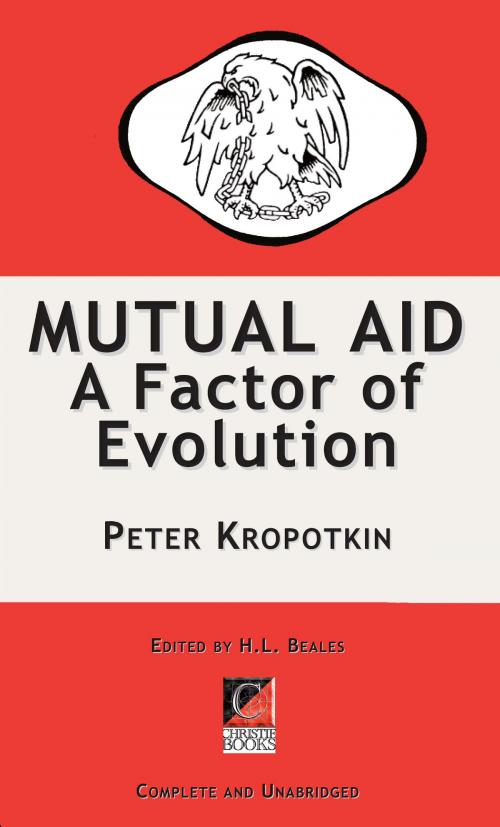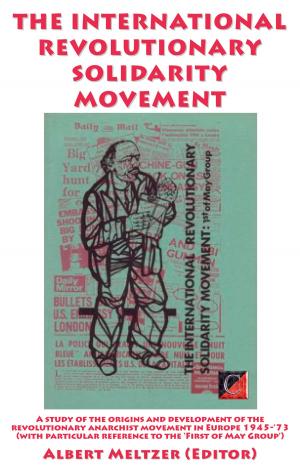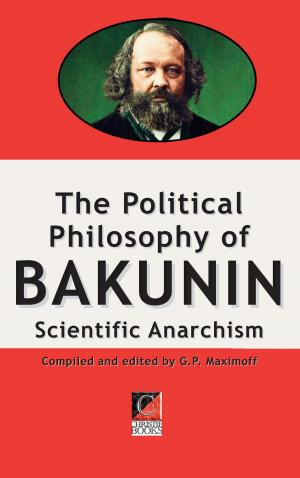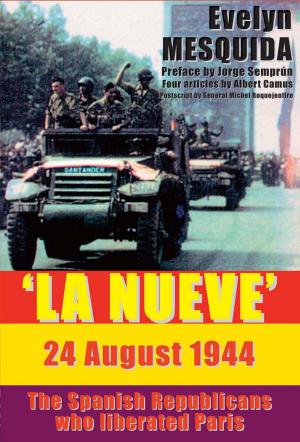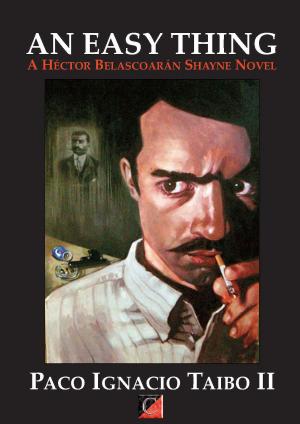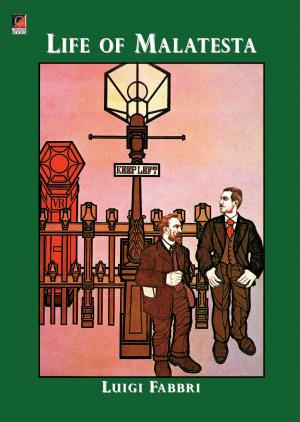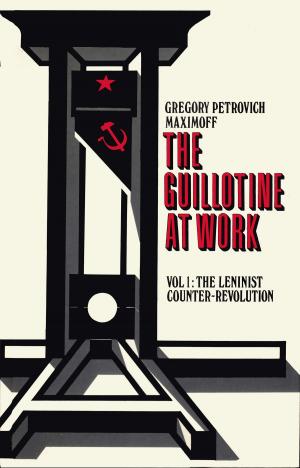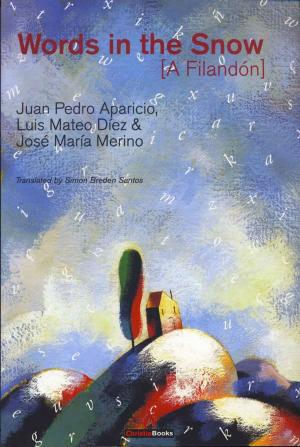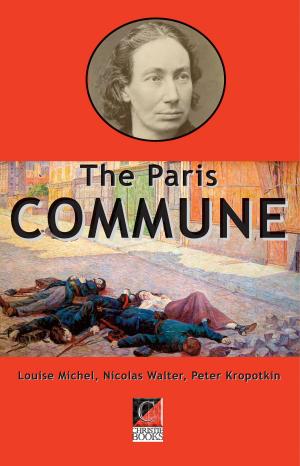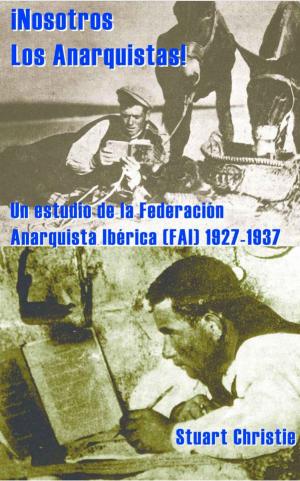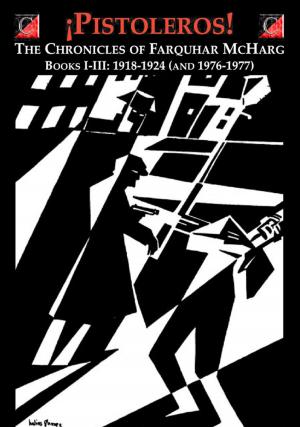MUTUAL AID
A Factor of Evolution
Nonfiction, History, Revolutionary, Social & Cultural Studies, Political Science, Politics, History & Theory, Social Science, Anthropology| Author: | Peter Kropotkin | ISBN: | 1230000309599 |
| Publisher: | ChristieBooks | Publication: | March 7, 2015 |
| Imprint: | ChristieBooks | Language: | English |
| Author: | Peter Kropotkin |
| ISBN: | 1230000309599 |
| Publisher: | ChristieBooks |
| Publication: | March 7, 2015 |
| Imprint: | ChristieBooks |
| Language: | English |
Kropotkin’s Mutual Aid is usually, and rightly, called his masterpiece. While the high quality of all his work makes it hard to say whether this classic can be considered his best, it is fair to say that it is probably his most famous and one of his most widely read. Suffice to say, that it is rarely out of print testifies to its importance as well as the quality and timelessness of its message.
It is often called an anarchist classic. This is not entirely accurate. Yes, it is a classic and it was written by an anarchist, indeed the leading anarchist thinker of the time. However, it is not a book about anarchism. It is, first and foremost, a work of popular science, a “best-selling work,” which made co-operation “well known in lay society” while ensuring it would “be discussed among biologists in the following decades.”[1] It was aimed at rebutting the misuse of evolutionary theory to justify the status quo, but its synthesis of zoological, anthropological, historical and sociological data achieved far more and, consequently, its influence is great. “It is arguable that of all the books on co-operation written by biologists,” suggests Lee Alan Dugatkin Professor of Evolutionary Biology at the University of Louisville, “Kropotkin’s Mutual Aid had the most profound affect on biologists, social scientists, and laymen alike.”[2] Anthropologist Ashley Montagu dedicated his book Darwin, Competition and Co-operation, to Kropotkin, stating it was a “classic” and “no book in the whole realm of evolutionary theories is more readable or more important, for it is Mutual Aid which provides the first thoroughly documented demonstration of the importance of co-operation as a factor in evolution.”[3]
This is not to say that anarchism plays no part in it nor that it holds nothing of interest for anarchists or anarchist theory. Far from it! The very mode of analysis, the looking into mutual aid tendencies of everyday life is inherently libertarian. It flows from the “bottom-up” and is rooted in popular history. More than that, it is documented with the skill of a talented scientist and, in this, it is somewhat unusual. It is often noted that Proudhon, the founding father of anarchism, was unique in being a socialist thinker who was also working class. In the case of Kropotkin, he was one of the few socialist thinkers who was a trained scientist, an extremely gifted one according to his peers. This education in the scientific method can be seen from all his work, but most obviously in Mutual Aid.
Kropotkin’s Mutual Aid is usually, and rightly, called his masterpiece. While the high quality of all his work makes it hard to say whether this classic can be considered his best, it is fair to say that it is probably his most famous and one of his most widely read. Suffice to say, that it is rarely out of print testifies to its importance as well as the quality and timelessness of its message.
It is often called an anarchist classic. This is not entirely accurate. Yes, it is a classic and it was written by an anarchist, indeed the leading anarchist thinker of the time. However, it is not a book about anarchism. It is, first and foremost, a work of popular science, a “best-selling work,” which made co-operation “well known in lay society” while ensuring it would “be discussed among biologists in the following decades.”[1] It was aimed at rebutting the misuse of evolutionary theory to justify the status quo, but its synthesis of zoological, anthropological, historical and sociological data achieved far more and, consequently, its influence is great. “It is arguable that of all the books on co-operation written by biologists,” suggests Lee Alan Dugatkin Professor of Evolutionary Biology at the University of Louisville, “Kropotkin’s Mutual Aid had the most profound affect on biologists, social scientists, and laymen alike.”[2] Anthropologist Ashley Montagu dedicated his book Darwin, Competition and Co-operation, to Kropotkin, stating it was a “classic” and “no book in the whole realm of evolutionary theories is more readable or more important, for it is Mutual Aid which provides the first thoroughly documented demonstration of the importance of co-operation as a factor in evolution.”[3]
This is not to say that anarchism plays no part in it nor that it holds nothing of interest for anarchists or anarchist theory. Far from it! The very mode of analysis, the looking into mutual aid tendencies of everyday life is inherently libertarian. It flows from the “bottom-up” and is rooted in popular history. More than that, it is documented with the skill of a talented scientist and, in this, it is somewhat unusual. It is often noted that Proudhon, the founding father of anarchism, was unique in being a socialist thinker who was also working class. In the case of Kropotkin, he was one of the few socialist thinkers who was a trained scientist, an extremely gifted one according to his peers. This education in the scientific method can be seen from all his work, but most obviously in Mutual Aid.
